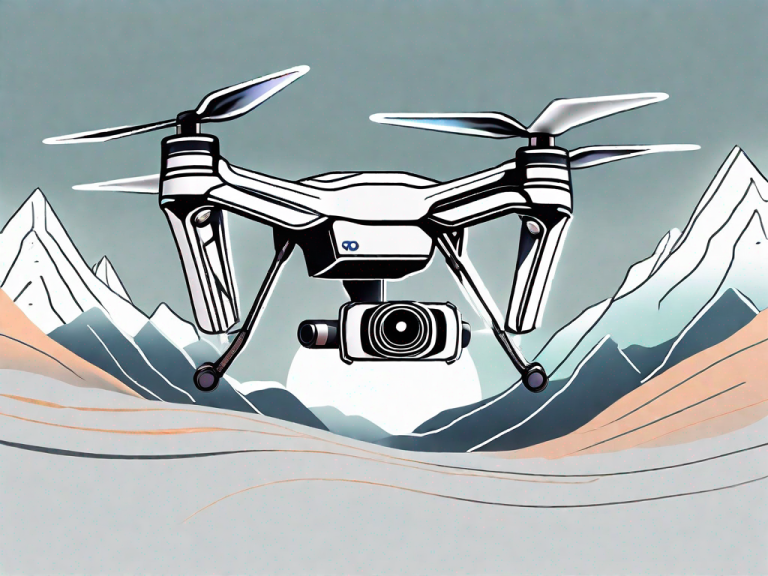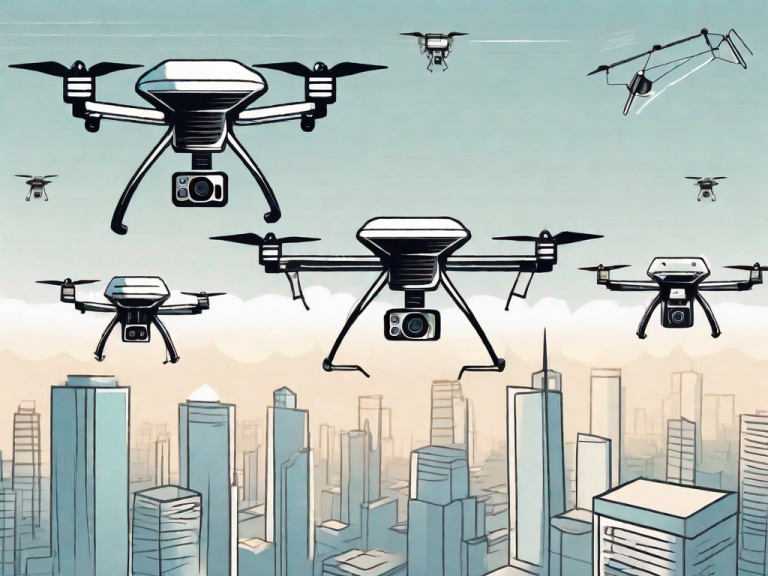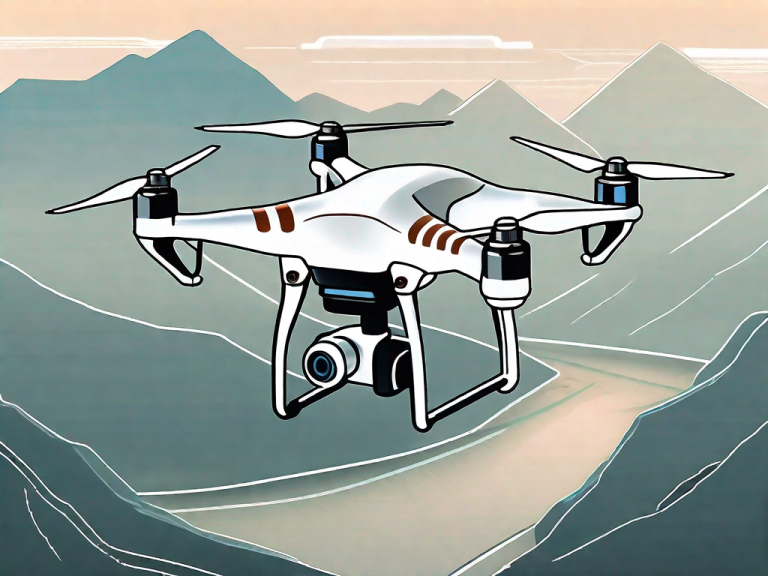Drone technology has revolutionized various industries, from aerial photography to search and rescue operations. But behind every successful drone flight is a reliable and high-performance battery. In this article, we will explore the world of drone batteries and discover the best options available in the market. So, whether you are a professional drone pilot or an enthusiast looking to enhance your drone’s performance, read on to find out about the essential aspects of drone batteries and make an informed choice.
Understanding Drone Batteries
The Importance of a Good Drone Battery
A good drone battery is essential for a smooth and uninterrupted flight experience. It provides the power required to keep your drone in the air, enabling you to capture breathtaking aerial shots or complete important tasks. Investing in a reliable drone battery ensures greater flight time, stability, and overall performance, enhancing your drone’s capabilities.
But what exactly makes a drone battery good? It’s not just about having enough power to keep your drone airborne. A good drone battery also needs to have a high discharge rate, allowing it to deliver power consistently and efficiently. This is especially important during maneuvers or when the drone is carrying a heavy payload. Additionally, a good drone battery should have a low self-discharge rate, meaning it can retain its charge for extended periods of time without losing power.
Furthermore, a good drone battery should have built-in safety features to protect against overcharging, over-discharging, and short circuits. These safety features not only protect the battery itself but also prevent any potential damage to your drone. So, when choosing a drone battery, it’s important to look for reputable brands that prioritize safety and performance.
Different Types of Drone Batteries
Drone batteries come in various types, each with its own unique features and advantages. The two most common types are LiPo (Lithium Polymer) batteries and Li-ion (Lithium-ion) batteries.
LiPo batteries offer high energy density, making them ideal for drones that require long flight times and heavy payload capacities. They are known for their ability to deliver a consistent and high discharge rate, ensuring that your drone performs optimally throughout the flight. Additionally, LiPo batteries have a relatively low self-discharge rate, allowing you to store them for longer periods without worrying about losing power.
On the other hand, Li-ion batteries have a higher energy-to-weight ratio, making them lighter and more compact. This makes them suitable for smaller drones and those focused on agility and speed. Li-ion batteries also have a longer lifespan compared to LiPo batteries, meaning they can endure more charge and discharge cycles before needing to be replaced.
When choosing between LiPo and Li-ion batteries, it’s important to consider the specific needs of your drone. If you prioritize flight time and payload capacity, LiPo batteries are the way to go. However, if you value agility and compactness, Li-ion batteries may be the better choice.
It’s worth noting that regardless of the type of battery you choose, proper care and maintenance are crucial for maximizing its lifespan and performance. This includes storing the battery in a cool and dry place, avoiding extreme temperatures, and following the manufacturer’s guidelines for charging and discharging.
Factors to Consider When Choosing a Drone Battery
When it comes to choosing a drone battery, there are several factors that you need to take into consideration. These factors can greatly impact the performance and functionality of your drone, so it’s important to choose wisely. In this article, we will explore some of the key factors to consider when selecting a drone battery.
Battery Life
Battery life is a crucial factor to consider when selecting a drone battery. This refers to the duration for which the battery can provide power to the drone before needing a recharge. In general, longer battery life allows for extended flight times and uninterrupted operations, ensuring you can make the most out of your drone’s potential.
When choosing a drone battery, it’s important to look for batteries with higher milliamp-hour (mAh) ratings, as they typically offer longer flight times. This means that you’ll be able to fly your drone for a longer period of time before needing to recharge the battery. This can be particularly useful if you’re planning to use your drone for aerial photography or videography, as it will give you more time to capture the perfect shot.
Charging Time
The charging time of a drone battery is equally important. Depending on the battery capacity and charger specifications, charging times can vary significantly. Opting for batteries that have shorter charging times can be highly beneficial, as this reduces downtime and allows you to get back in the air quickly.
One option to consider is investing in fast-charging systems that can recharge your battery in a fraction of the time. These systems utilize advanced charging technology to speed up the charging process, allowing you to spend less time waiting and more time flying. This can be especially useful if you’re on a tight schedule or if you’re planning to use your drone for professional purposes.
Weight and Size
The weight and size of a drone battery have a direct impact on the overall performance and maneuverability of your drone. Heavier batteries can affect flight stability and agility, making it more difficult to control your drone. Therefore, it is crucial to find a balance between battery capacity and weight.
When selecting a drone battery, it’s important to look for lightweight options that provide optimal power without compromising your drone’s performance. This will allow your drone to fly smoothly and respond quickly to your commands, enhancing your overall flying experience. Additionally, smaller batteries can also make your drone more portable, making it easier to transport and carry around.
In conclusion, choosing the right drone battery is essential for maximizing the performance and functionality of your drone. By considering factors such as battery life, charging time, weight, and size, you can ensure that you select a battery that meets your specific needs and requirements. So, take your time, do your research, and choose wisely!
Top-Rated Drone Batteries in the Market
Review of High-Capacity Drone Batteries
When it comes to high-capacity drone batteries, there are a few top-rated options that stand out in the market. One of these is the PowerMax Pro 5000. With an impressive 5000mAh capacity, this battery offers an extended flight time of up to 25 minutes on compatible drones. Imagine capturing breathtaking aerial footage or exploring vast landscapes without worrying about running out of power.
What sets the PowerMax Pro 5000 apart from the competition is its advanced power management system. This system ensures stable performance and longevity, allowing you to make the most out of your drone flights. Additionally, the battery features built-in overcharge and discharge protection, providing you with peace of mind during your aerial adventures.
Another excellent option in the high-capacity category is the HyperVolt X2. This LiPo battery packs a whopping 6000mAh, offering an impressive 30-minute flight time. Whether you’re capturing stunning aerial photography or engaging in professional drone operations, the HyperVolt X2 provides reliable power to keep your drone in the air for longer.
What makes the HyperVolt X2 stand out is its advanced safety features. The battery incorporates voltage and temperature monitoring, ensuring reliable power delivery while protecting against overheating or overcharging. This level of safety is crucial, especially when dealing with high-capacity batteries.
Review of Fast-Charging Drone Batteries
For those who value quick turnaround times and want to spend more time flying, fast-charging drone batteries are a game-changer. One of the top contenders in this category is the SwiftCharge Turbo. With its innovative charging technology, this battery can recharge up to 80% of its 4500mAh capacity in just 30 minutes. Say goodbye to long waiting times and hello to more thrilling flights.
The SwiftCharge Turbo goes beyond fast charging. It incorporates smart charging algorithms that optimize battery performance and prolong its lifespan. This means you can enjoy reliable power delivery and a longer overall battery life, ensuring that your drone adventures are not cut short due to battery issues.
Another notable option in the fast-charging category is the FlashMax Speeder. This Li-ion battery boasts a capacity of 5200mAh and features a unique rapid charge mode. In just 20 minutes, it can reach an impressive 70% charge, providing ample power for your drone in a flash.
The FlashMax Speeder’s efficient design and robust construction make it a reliable choice for drone enthusiasts and professionals alike. Whether you’re racing your drone or capturing fast-paced action shots, this battery will keep up with your demands, ensuring you never miss a moment.
When it comes to drone batteries, there’s no shortage of options in the market. Whether you prioritize high-capacity or fast-charging capabilities, these top-rated batteries offer exceptional performance and reliability. Choose the one that best suits your needs and take your drone flights to new heights.
Maintaining Your Drone Battery for Optimal Performance
Drone batteries are the lifeblood of your unmanned aerial vehicle, providing the necessary power to keep it soaring through the skies. To ensure that your drone battery performs at its best and lasts as long as possible, proper maintenance and care are essential. In this guide, we will explore some key practices for storing and charging your drone batteries.
Proper Storage of Drone Batteries
Proper battery storage is crucial for maintaining optimal performance and prolonging the lifespan of your drone battery. When not in use, store your batteries in a cool and dry place away from direct sunlight. This will help prevent the battery from overheating and potentially damaging its internal components.
Avoid extreme temperatures, as they can affect battery chemistry. High temperatures can cause the battery to degrade faster, while freezing temperatures can reduce its overall capacity. It’s important to find a storage location that maintains a moderate temperature to ensure the longevity of your battery.
Additionally, ensure that the batteries are stored in a fireproof container or bag for added safety. Lithium-ion batteries, commonly used in drones, have been known to catch fire or explode when mishandled or damaged. By storing your batteries in a fireproof container, you can minimize the risk of accidents and protect both your drone and surrounding objects.
Best Practices for Charging Drone Batteries
Charging your drone batteries properly is just as important as storing them correctly. By following these best practices, you can ensure safe and efficient charging:
- Always use the manufacturer-recommended charger to avoid compatibility issues and potential damage to the battery. Different drone models may require specific chargers designed to deliver the right amount of power and voltage. Using an incompatible charger can result in overcharging or undercharging, which can be detrimental to the battery’s health.
- Ensure that the charging area is well-ventilated and free from flammable materials. While charging, batteries can generate heat, and proper ventilation helps dissipate this heat. Additionally, keeping the charging area clear of flammable materials reduces the risk of fire hazards.
- Avoid charging batteries unattended, especially overnight or for an extended period. While modern chargers often have built-in safety features, it is still recommended to keep an eye on the charging process. This way, you can quickly respond to any potential issues that may arise, such as overheating or abnormal charging behavior.
- Do not overcharge the batteries. Disconnect them from the charger once they reach the recommended charge level. Overcharging can lead to excessive heat generation and can even cause the battery to swell or leak. Most drones have indicators that show the battery’s charge level, making it easier to know when to disconnect the charger.
- Inspect the charging cables regularly for any signs of damage or wear and replace them if necessary. Frayed or damaged cables can pose safety risks and may not deliver a consistent flow of power to the battery. By ensuring that the charging cables are in good condition, you can maintain a reliable and safe charging process.
By following these guidelines for storing and charging your drone batteries, you can maximize their performance and prolong their lifespan. Remember, proper maintenance and care are essential for keeping your drone in the air and capturing those breathtaking aerial shots.
Safety Tips for Using Drone Batteries
Handling Drone Batteries Safely
Safety should always be a top priority when handling drone batteries. Follow these safety tips to minimize the risk of accidents or injuries:
- Always handle batteries with clean, dry hands and avoid touching the terminals.
- Keep batteries away from water, moisture, and flammable materials.
- Store and transport batteries in appropriate containers that provide protection against physical damage.
- Do not expose batteries to extreme temperatures or direct sunlight.
- If you notice any swelling, leakage, or unusual behavior from your battery, discontinue using it immediately and seek professional assistance.
What to Do in Case of a Drone Battery Malfunction
In the event of a drone battery malfunction, it is essential to act promptly and cautiously. Follow these steps:
- Land your drone safely and remove it from the flight area.
- Do not attempt to disassemble or repair the malfunctioning battery yourself.
- Place the battery in a fireproof container or bag and move it away from flammable materials.
- Contact the drone manufacturer or a qualified technician to assess the situation and handle the battery safely.
Future of Drone Batteries
Technological Advancements in Drone Battery Design
The future of drone batteries holds exciting possibilities. With advancements in technology, we can expect improved battery designs that offer increased energy density, longer flight times, and faster charging capabilities. Research and development are ongoing to create batteries that strike a perfect balance between power and weight, enabling drones to perform more complex tasks and push their limits to new heights.
Potential Improvements in Future Drone Batteries
Potential improvements in future drone batteries include:
- Graphene-based batteries that offer even higher energy densities and faster charging.
- Batteries with wireless charging capabilities for greater convenience and ease of use.
- Integration of smart and adaptive charging algorithms for optimal battery performance and longevity.
- Enhancement of safety features, such as improved thermal management and built-in protection mechanisms.
FAQs
Here are some frequently asked questions about drone batteries:
1. Can I use any battery for my drone?
It is highly recommended to use batteries specifically designed and approved for your drone model. Using incompatible batteries can lead to performance issues, damage to the drone, or even accidents.
2. How long does a drone battery last?
The battery life depends on various factors, including the capacity of the battery, flight conditions, and the drone’s power requirements. On average, most drone batteries provide between 10 to 30 minutes of flight time.
3. Can I charge my drone battery with a different charger?
Using a charger that is not recommended or designed for your drone battery can lead to compatibility issues, overcharging, or damage to the battery. Always use the manufacturer-recommended charger.
4. Can I charge my drone battery while it is still inside the drone?
In general, it is not recommended to charge drone batteries while they are inside the drone. Follow the manufacturer’s instructions and remove the battery from the drone for charging.
5. Can I travel with my drone batteries?
When traveling with drone batteries, it is essential to comply with airline regulations and safety guidelines. Always check with the airline and follow the necessary procedures for transporting batteries.
6. How often should I replace my drone battery?
The lifespan of a drone battery depends on several factors, including usage, charging practices, and storage conditions. Generally, drone batteries last for around 100 to 300 charge cycles. However, it is recommended to monitor battery health regularly and replace them if you notice any significant decline in performance or signs of damage.
7. How should I dispose of old or damaged drone batteries?
Drone batteries should not be disposed of in regular household waste. Contact local recycling centers or electronic waste disposal facilities that accept used batteries. These centers can handle the proper disposal and recycling of drone batteries, minimizing their environmental impact.









